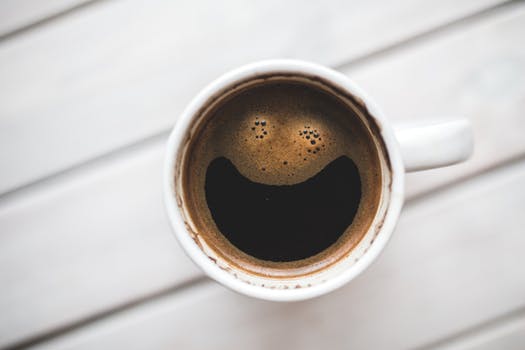Miski Dahir, Ottawa ON — The cliché of the late night studying, coffee binge-drinking student is really well known. Upon entering university, I was told that coffee would be my best friend in the next coming years. Coffee is supposedly a quick fix for trying to juggle studying, upcoming deadlines and commitments. A cup in the morning will give you the energy that you need to power through the day. With coffee being extremely accessible (at Carleton we happen to have 8 coffee shops and a bunch of other locations that also serve coffee), why not drink coffee? So how exactly does coffee work in the brain? What is it about this widely popular stimulant that keeps us powering through the day?
How does coffee work in the brain?
Caffeine is the most commonly used central nervous system stimulant. It works by blocking adenosine receptors in the brain. Adenosine is a chemical the prevents excitatory signals in the brain from going through. As your neurons in your brain fire, adenosine is produced as a by-product. Once adenosine levels reach a certain level in your brain, you start to feel tired and your body feels the need to sleep. Caffeine, the substance in coffee, is very structurally similar to adenosine so it’s able to fit into the adenosine receptors. When caffeine binds to these receptors, it blocks them. As a result, other excitatory signals stimulated by neurotransmitters (naturally occurring in your brain) like dopamine and serotonin, are able to go through easier. This is why when you feel energized and more alert after having a cup of coffee (Chow). Check out this cool link that describes what happens in your brain when you drink coffee!
Is there any good in drinking coffee?
As a memory booster:
Some studies have shown that caffeine can work to improve memory by increasing energy metabolism in the brain. In a study performed by a research team lead by Giulio Maria Pasinetti (2012), mice with diet induced type-2 diabetes were used to see if decaffeinated coffee could be used to improve the use of glucose. The mice that were provided with a decaffeinated coffee preparation before the induced diabetes were able to use glucose more effectively in cellular respiration. The results from this experiment were very promising because people with type-2 diabetes often have difficulty with effective utilization of glucose in the brain. This comes with side effects like neurocognitive problems. If you’re interested in learning more about how energy metabolism works in memory function, check out this paper: https://www.nature.com/articles/ncomms15510
Another study outlines the effect of caffeine on short term memory. In a study performed by Koppelstaetter et al (2008) two groups of people were brought into the lab. Some were given caffeine and some were given a placebo. Both groups underwent a working memory task while fMRI scans were taken. Participants who were given caffeine showed more activation in parts of the prefrontal cortex. One region in particular is the anterior cingulate cortex. This region of the brain is involved in planning, decision making, concentration and attention. This means having a cup of coffee could improve your performance on tasks such as holding on to a phone number as you look for a pen to write it down or keeping a recipe in your head as you cook.
On Degenerative Brain Diseases:
Interestingly, some studies have shown that caffeine may have some effect on degenerative brain diseases like Alzheimer’s and Parkinson’s. In a study performed in elderly men in three European countries over the course of 10 years, a beneficial effect was observed in moderate (3 cups a day) coffee drinkers (Wierzejska, 2017). Another study using mice models showed the levels of β-amyloid (a pathogenic protein that plays a key role in Alzheimer’s) decreased with moderate caffeine consumption(Wierzejska, 2017). An additional correlation study showed that coffee drinkers developed Parkinson’s about 8 years later than non-coffee drinkers (Wierzejska, 2017). However, there are also some contrary data and conflicting studies. The mechanism of how coffee may be a protective factor against degenerative brain diseases is also not conclusive. Regina Wierzejska states in her review paper on the topic: “The cumulative body of evidence about lower incidence of PD and AD among coffee drinkers is substantial but not conclusive enough to prove a positive effect of coffee consumption on the development of these diseases.”
Something interesting about coffee:
One recent study shows that caffeine may disrupt your sleep performance if you are a morning person instead of a night owl. 50 college students participated in a study where they wore a wristband that measured their movements (to see if the slept well). They were also asked to record their coffee consumption for a week. Students who had more caffeine, and were early birds, had more periods of wakefulness after they fell asleep. This difference was not observed in night owls.
On a side note:
While drinking coffee can definitely be awesome, it’s important to note that there are some negatives to too much coffee. Too much caffeine can trigger insomnia, anxiety, restlessness and a rapid heartbeat in some people. The DSM 5 is the Diagnostic and Statistical Manual of Mental Disorders and is used classify and define a criteria for different mental disorders. Based on the DSM 5, signs of restlessness, nervousness, excitement, insomnia, flushed face, diuresis, gastrointestinal disturbance, muscle twitching, rambling flow of thought and speech (among some others) can indicate caffeine intoxication. Caffeine can also disturb your circadian rhythm; your sleep cycle.
Here are some tips from Stacey Lu from the American Psychology Association to limit/monitor your caffeine intake:
- Delay having coffee until after an hour from when you wake up. This way, you can have your cup of coffee when your cortisol level (a stress hormone) dip.
- Don’t drink caffeine for six hours prior to bedtime for better quality of sleep. A study by Christopher Drake shows that caffeine intake can affect your “REM patterns and sleep efficiency”
